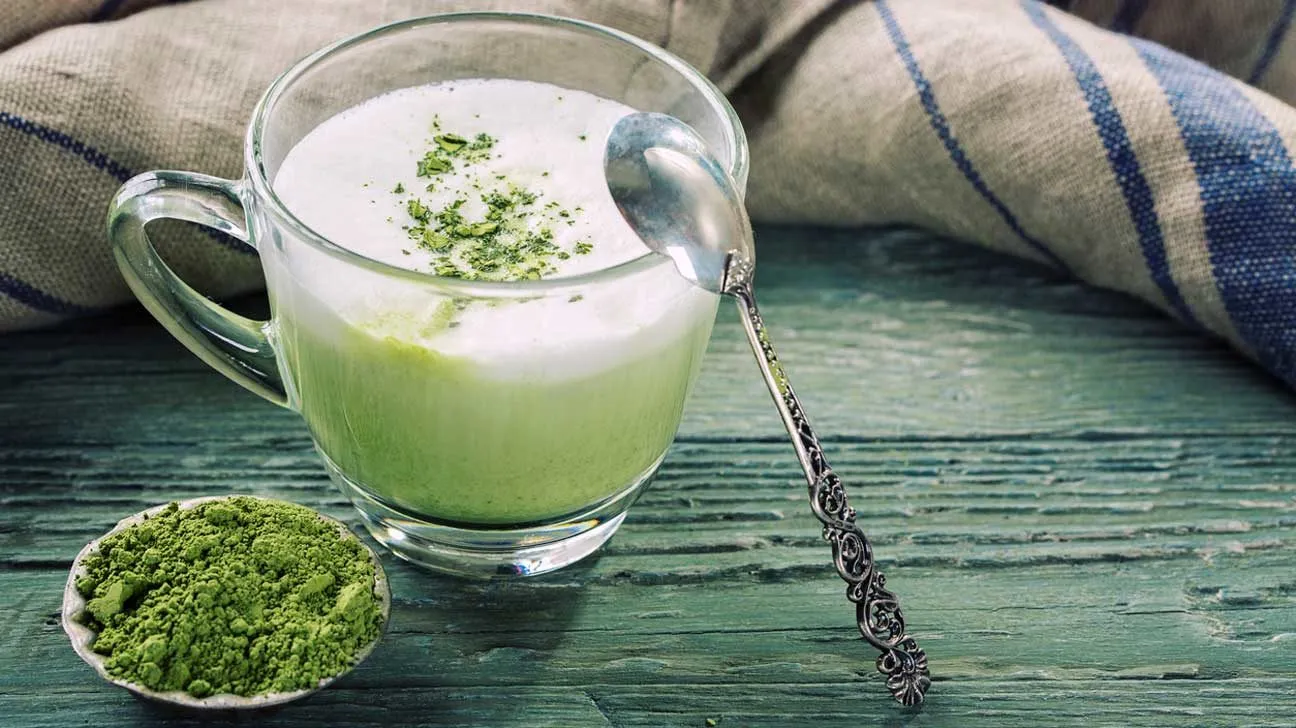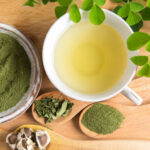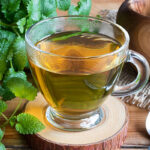Benefits of Drinking Matcha Tea
Benefits of drinking matcha tea, a variant of green tea, is celebrated not only for its unique flavor but also for its potential health benefits, ranging from heart health to weight management.
Unlike traditional green tea, matcha is cultivated in a distinctive manner, with farmers shading the plants during most of their growth period. This practice enhances chlorophyll production, increases amino acid content, and imparts a darker green hue to the leaves.
After harvest, the stems and veins are meticulously removed, and the leaves are finely ground into a vibrant green powder known as matcha.
Why Drink Matcha Tea?
This method preserves the nutrients from the entire tea leaf, resulting in a concentration of caffeine and antioxidants surpassing those found in conventional green tea.
1. High in Antioxidants: Matcha stands out for its rich catechin content, acting as potent natural antioxidants. These antioxidants, crucial for stabilizing harmful free radicals, have the potential to prevent cell damage and reduce the risk of chronic diseases.
2. Liver Protection: Research suggests that matcha may contribute to liver health, with studies indicating a potential decrease in the risk of liver disease. However, further research is needed to understand the broader effects on the general population.
3. Brain Function Enhancement: Components in matcha, including caffeine and L-theanine, have been linked to improved brain function. Studies reveal enhancements in attention, reaction time, and memory among individuals consuming matcha, making it a promising candidate for cognitive support.
4. Potential Cancer Prevention: Matcha’s high content of epigallocatechin-3-gallate (EGCG), a potent catechin, has shown promise in test tubes and animal studies for cancer prevention. While more research is required, the presence of compounds with anti-cancer properties underscores matcha’s potential health benefits.
5. Heart Health Promotion: Similar to green tea, matcha has been associated with a lower risk of cardiovascular disease. Though some studies suggest its potential to lower the risk of high blood pressure, additional research is necessary to establish these claims definitively.
6. Weight Management: Known for its weight loss benefits, green tea, and by extension, matcha, have been linked to reductions in body mass index. Incorporating matcha into a balanced diet and exercise routine may contribute to weight management.
7. Easy Preparation: The versatility of matcha extends to its ease of preparation. Traditional matcha tea involves sifting powder into hot water and whisking with a bamboo whisk. It can also be incorporated into various recipes, from teas and lattes to desserts, providing a creative and nutritious addition to one’s culinary repertoire.
In conclusion, matcha tea’s distinctive cultivation, high antioxidant content, and potential health benefits make it a valuable addition to both traditional tea culture and modern wellness practices.
Incorporating matcha into your routine offers a flavorful and health-conscious way to enjoy the numerous advantages it brings to heart health, cognitive function, and overall well-being.
The Health Benefits of Drinking Matcha Tea

Matcha tea has garnered considerable attention in the realm of health and wellness, and rightfully so. This powdered form of green tea is a nutritional powerhouse, boasting concentrated benefits that may surpass those of traditional green tea.
Shayna Komar, RD, LD, a licensed and registered dietitian at Thomas F. Chapman Family Cancer Wellness at Piedmont, emphasizes that matcha could potentially possess three times the antioxidant potency of regular green tea.
As outlined by Komar, research has indicated that matcha:
- Is rich in cancer-fighting antioxidants, particularly the catechin epigallocatechin gallate (EGCG).
- Contains fiber, promoting healthy digestion.
- Includes essential vitamins and minerals such as vitamin C, chromium, magnesium, selenium, and zinc.
- May contribute to the reduction of blood sugar and cholesterol levels.
- Has the potential to enhance metabolism, aiding in calorie burning.
- Might have positive effects on mood.
Distinguishing itself with a unique flavor profile, matcha sets itself apart from traditional green tea due to its preparation from finely ground tea leaves.
While traditional green tea is crafted from leaves, veins, and stems, matcha’s aromatic and distinctive taste is attributed to its high chlorophyll and amino acid content, leaving a lingering sweet aftertaste, notes Komar.
Incorporating matcha into your diet can be more versatile than commonly perceived. Beyond sipping on a cup of matcha tea or enjoying a matcha latte, Komar suggests:
- Adding it to boiling water when cooking oatmeal, pasta, grains, or soups.
- Blending it into smoothies.
- Stirring the powder into muffin mix before baking.
Despite its myriad benefits, concerns about lead contamination have been raised in some matcha products. Komar advises consumers to be vigilant and opt for matcha green tea sourced from Japan rather than China to mitigate this risk.
Considering the caffeine content, Komar offers a word of caution. Even decaffeinated varieties contain some natural caffeine, and due to matcha’s preparation from crushed whole tea leaves, its caffeine content is slightly higher than that of bagged tea. Matcha contains around 70 milligrams of caffeine per cup, compared to coffee’s 100 to 120 milligrams per cup.
“Caffeine tends to be addictive, and excessive consumption can lead to unpleasant withdrawal symptoms,” warns Komar.
Her recommendation is to limit matcha green tea intake to one or two cups per day to strike a balance between enjoying its benefits and avoiding potential drawbacks.
Benefits of Green Tea for Skin
Supporting Emotional Well-being in the Elderly

A graduate of Computer Science and Information Management Technology. Diploma – Caregiving, Certificates – Dementia and Diabetes Awareness and Management. A researcher, blogger, songwriter, singer and acoustic guitarist. Born in an environment where natural talents such as healing are imparted at our natural birth. This natural talents of healing is the result of our genetic inheritance and the training from family environment.













